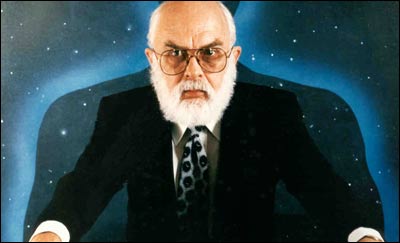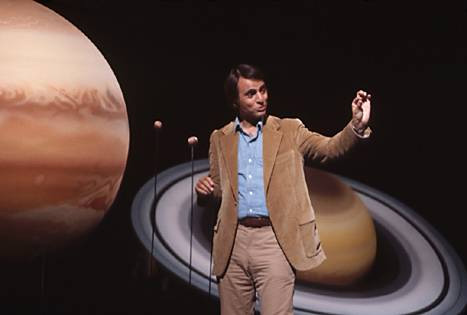
It is a common argument from Christians that this country was founded on
Christian beliefs, and that our Founding Fathers were Christians.
It is unfortunate that those who make this argument haven't researched their argument. History is clear and many quotes have been documented that clearly state the opposite.
A Deist is a person who believes in Deism, defined by
dictionary.com as: n. The belief, based solely on reason, in a God who created the universe and then abandoned it, assuming no control over life, exerting no influence on natural phenomena, and giving no
supernatural revelation.
It has been clearly documented that many of our founding fathers were deists, which was a common belief system during the time in which they lived. (Especially as it was nearly immediately following the Age of Reason in England.) The Constitution of the United States contains no mention of God whatsoever. In fact, Alexander Hamilton was questioned by some about the omission of God. In an article published in
The Nation in February of 2005 titled "Our Godless Constitution," the author, Brooke Allen cites that on one account, Hamilton responded that "the new nation was not in need of "foreign aid."
In the
same article it is pointed out in the essay series (eighty-five in number) "The Federalist" mentions God just twice, both times by James Madison, and only in the sense of "only Heaven knows," per Gore Vidal. In the Declaration of Independence, the only mentions of God are: "the Laws of Nature and Nature's God," and the more frequently recited line about men "endowed by their Creator with certain inalienable rights." In both instances, the context agrees with the idea of Deism, not the ideas of Christianity.
Too many people forget about
Thomas Paine. Known as "the father of the American Revolution," it as arguable among some as to whether Paine was a Deist or an Atheist. Regardless, Paine wrote such works as "Common Sense," that pamphlet that strongly urged an American independence from England; also the author of "The Crisis," about the American Revolution, "The Rights of Man," and "Age of Reason." Thomas Paine was among the most important of the Founding Fathers, and his "Age of Reason" was very anti-religion and highly controversial.
Ferrell Till, an author who wrote
"The Christian Nation Myth," published on
infidels.org, points out that other Founding Fathers who subscribed to a deistic thought were George Washington, Thomas Jefferson, Benjamin Franklin, Ethan Allen, James Madison and James Monroe. As Till mentions in this piece, Thomas Jefferson was highly anti-cleric. In an 1814 letter to Horatio Spafford Jefferson wrote:
"In every country and every age, the priest has been hostile to liberty. He is always in alliance with the despot, abetting his abuses in return for protection to his own. It is easier to acquire wealth and power by this combination than by deserving them, and to effect this, they have perverted the purest religion ever preached to man into mystery and jargon, unintelligible to all mankind, and therefore the safer for their purposes" (George Seldes, The Great Quotations, Secaucus, New Jersey Citadel Press, 1983, p. 371).He wrote in another letter to John Adams:
"To talk of immaterial existences is to talk of nothings. To say that the human soul, angels, God, are immaterial is to say they are nothings, or that there is no God, no angels, no soul. I cannot reason otherwise" (August 15, 1820). And in another letter to Adams:
"And the day will come when the mystical generation of Jesus, by the supreme being as his father in the womb of a virgin, will be classed with the fable of the generation of Minerva in the brain of Jupiter" (April 11, 1823).
In 1797, there was an instance in which a recorded
vote was required from the Senate, and it was the 339
th time that this was so. At that time, the United States Government had finished a "Treaty of Peace and Friendship between the United States of America and the Bey and Subjects of Tripoli, or Barbary," now known simply as the Treaty of Tripoli. Article 11 of that treaty contains this passage:
"As the Government of the United States...is not in any sense founded on the Christian religion--as it has in itself no character of enmity against the laws, religion, or tranquillity of Musselmen--and as the said States never have entered into any war or act of hostility against any Mehomitan nation, it is declared by the parties that no pretext arising from religious opinions shall ever produce an interruption of the harmony existing between the two countries." This document was signed by both Secretary of State Timothy Pickering and President John Adams, and then it was sent to the Senate for ratification. In all of the 339 instances for Senate vote, this was only the third time a
vote was unanimous.
Thomas Jefferson was the man who said that we must have "a wall of separation between church and state." It was John Adams that commented that if not for legal restraints placed against them, that the Puritans would "whip and crop, and pillory and roast." (Note: the Puritans were the fundamentalists of those days.)
James Madison said,
"religious bondage shackles and debilitates the mind and unfits it for every noble enterprise," and he noted
"almost fifteen centuries" during which Christianity had been on trial:
"What have been its fruits? More or less in all places, pride and indolence in the Clergy, ignorance and servility in the laity, in both, superstition, bigotry, and persecution."Following are a few other quotes (found on
About.com) from Founding Fathers regarding the issue:
"The appropriation of funds of the United States for the use and support of religious societies, [is] contrary to the article of the Constitution which declares that 'Congress shall make no law respecting a religious establishment'" (James Madison, Veto, 1811)
"The United States of America have exhibited, perhaps, the first example of governments erected on the simple principles of nature; and if men are now sufficiently enlightened to disabuse themselves of artifice, imposture, hypocrisy, and superstition, they will consider this event as an era in their history. Although the detail of the formation of the American governments is at present little known or regarded either in Europe or in America, it may hereafter become an object of curiosity. It will never be pretended that any persons employed in that service had interviews with the gods, or were in any degree under the influence of Heaven, more than those at work upon ships or houses, or laboring in merchandise or agriculture; it will forever be acknowledged that these governments were contrived merely by the use of reason and the senses...." (John Adams, 1787)
"If Religion consist in voluntary acts of individuals, singly, or voluntarily associated, and it be proper that public functionaries, as well as their Constituents shd discharge their religious duties, let them like their Constituents, do so at their own expense." (Madison, detached memoranda, 1820)
"Congress should not establish a religion and enforce the legal observation of it by law, nor compel men to worship God in any manner contrary to their conscience, or that one sect might obtain a pre-eminence, or two combined together, and establish a religion to which they would compel others to conform" (Madison, Annals of Congress, 1789).
I could continue; and entire article could be comprised of quotes from Thomas Jefferson alone. And in fact, Thomas Paine wrote lengthy articles about it! But let the truth be known, the Founding Fathers were NOT CHRISTIANS, nor did they create this country from
Christian doctrine. Let is also be known that "In God We Trust" was not added to the United States currency until an
act of Congress on January 18, 1867 during the time of the Civil War. It was not until 1954 that "under God" was incorporated into the Pledge of Allegiance. Don't blame that business on the men who built this country.
 So, I finally decided to register for the JREF Forums and get more involved in that community. For a forum that is supposedly a beacon for skeptics and intelligent people, there sure are a lot of "wooists" there. Enough to almost depress me at how many there are on that forum alone!
So, I finally decided to register for the JREF Forums and get more involved in that community. For a forum that is supposedly a beacon for skeptics and intelligent people, there sure are a lot of "wooists" there. Enough to almost depress me at how many there are on that forum alone!







